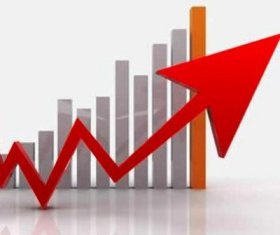The Bank of Ghana (BoG) raised its main lending rate on Wednesday to stem rising inflation, which touched a three-year record in April.
The monetary policy committee (MPC) of the bank increased the policy rate by 100 basis points to 16 percent, taking the view that risks to the inflation outlook are elevated and outweigh the risks to growth, Governor Henry Kofi Wampah said at a press briefing in Accra.
The policy rate is now at its highest level since February 2010. Inflation has risen from 8.8 percent in January to 10.6 percent in April amid an increase in food inflation and a weak currency that has weighed on non-food prices. The BoG has traditionally aimed to keep inflation below 10 percent.
“The major upside risks to the inflation outlook are heightened inflation and exchange rate expectations, the lingering fiscal pressures, challenges in the energy sector, the effect of weakened commodity prices on the external sector, and the likelihood of full cost-recovery in the energy sector,” said Dr. Wampah.
Head of Databank Research Sampson Akligoh said the rate-hike was expected, but added he is concerned about how much further the BoG can embark on policy tightening in view of the inflation outlook.
“I think that monetary policy currently has less room to accommodate future increases in inflation, which may be occasioned by the new basket. Further tightening could hurt the real sector and dent the growth outlook for the year as interest rates are already abnormally high.”
Dr. Wampah said domestic economic conditions were “challenging” in the first four months of the year, with grim consumer and business sentiment indications accompanied by a slowdown in the pace of economic activity.
He said the Composite Index of Economic Activity (CIEA), the bank’s main gauge of the economy, contracted at an annual rate of 0.6 percent in March.
The deceleration of the economy weighed heavily on fiscal revenues, which were short of targets set by Government in the first four months of the year. Tax revenue came in at GH¢4.2billion against a target of GH¢4.9billion.
This was due to lower-than-expected company profits and imports, Dr. Wampah said, adding that external grants received from donors also fell short of target by 38.3 percent.
“Government’s fiscal deficit was equivalent to 3.8 percent of GDP [in the period], against a target of 3 percent. This outturn was on the back of a significant shortfall in revenues, with expenditures marginally below target,” he disclosed.
Databank’s Akligoh said “fiscal imbalances remain Ghana’s worst nightmare, and its accommodation by monetary policy is fostering imbalances in the economy and stifling private sector growth.”
The BoG said annual growth in private sector credit reduced to 28.7 percent in March from 44.6 percent a year earlier, and the average cost of a bank loan inched up to 27.1 percent in April from 25.7 percent in December.
“While, admittedly, commercial banks are reluctant to respond to policy rate declines, they are very prompt in responding to upticks, and lending rates will certainly remain high,” Akligoh said.
Banks will start implementing a “base rate formula” from July 2 to ensure transparency in the pricing of credit, Governor Wampah announced. The base rate is, nominally, the lowest rate of interest a bank charges on its loans. Concerns about the lack of a uniform standard for setting base rates led to the creation of the formula.
Akligoh said banks will not necessarily increase their base rates to reflect the BoG’s recent hike, but the increase will be embedded in actual transaction rates offered to their clients.
By Leslie Dwight MENSAH
Business News of Friday, 24 May 2013
Source: B&FT
BoG gets inflation jitters













